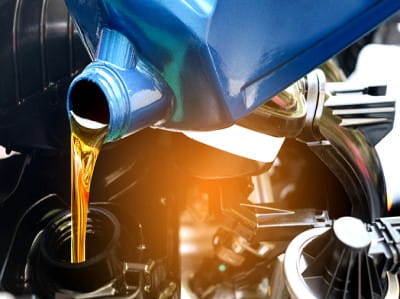John Townsend
Public Relations Manager, DC
O: (202) 481-6820 (ext. 4462108)
C: (202) 253-2171
jtownsend@aaamidatlantic.com
WASHINGTON, D. C. (Thursday, August 12, 2021) –– Hot August nights. Hot August days. They are deadly to humans and vexatious to vehicles, especially vehicles that were poorly maintained during the pandemic. That dangerous coast to coast heat-wave is threatening 146 million people, and even worse, it is a perfect storm for heat strokes, hot car deaths, and other lingering morbidities.
Roadside Rescuers at AAA are bracing for a huge spike in roadside assistance SOS calls with the soaring temperatures. Car batteries will be vexed by the extreme heat, and succumb to it, and there will likely be a spike in SOS calls for tire troubles too.
Although the “Dog Days of Summer” officially ended yesterday, some say, and while the “exact dates of the Dog Days can vary from source to source,” the Washington metro area is sweltering from the “hottest heat of the season.” Plus, “some parts of the I-95 corridor could reach 100 degrees Thursday afternoon with oppressive heat indices ranging between 105-110 degrees,” warns the National Weather Service (NWS).
With heat indices that high, the steering wheel inside a vehicle can reach 159 degrees (temperature for cooking medium rare meat). The seats can reach 162 degrees (temperature for cooking ground beef) and the dashboard can reach 181 degrees (temperature for cooking poultry). Extreme heat can, and does, claim human lives.
“Heat is one of the deadliest weather events, killing hundredsof people every year,” health officials warn.
Every nine days, across the United States, a child dies while unattended in a hot car. On Tuesday, a five-year-old boy died after reportedly being left in a hot car in Springfield, Virginia.
“Excessive heat events, or abrupt and dramatic temperature increases, are particularly dangerous and can result in above-average rates of mortality,” cautions the United States Environmental Protection Agency (EPA).
“Inevitably, these high temperatures will bring a wave of calls from motorists whose batteries fail and air conditioning breaks down,” said Russell Jeffrey, Supervisor, AAA Roadside Assistance Fleet Depot in Springfield, Virginia. “In this heat dome, drivers and their passengers’ safety is at risk as well, so it is critical that everyone prepare their vehicles accordingly. Older, poorly maintained vehicles are particularly vulnerable to overheating or battery failure, but any vehicle is susceptible to a breakdown once the mercury rises.”
It will feel like 110 degrees in the shade. Whew! From Sunday to Tuesday this week, AAA responded to 5,095 calls for Emergency Roadside assistance in Maryland, with nearly 1,300 calls for battery-related service. Summer travel, which is comprised overpoweringly by road trips this summer, and extreme heat are both contributing to the number of calls AAA is getting for dead batteries. It is hotter than the Kalahari.
“With temperatures soaring and scorching, having your vehicle serviced by professionals who are trained to identify potential problems can help prevent heat-related breakdowns and often saves money on repairs,” explained Melvin Escobar, Car Care Manager, AAA Rockville Car Care Center. “The best way to keep a car in top shape is to have a trusted repair shop where you can go when it’s time for regularly-scheduled service.”
Yet with summertime activities in full swing, car engines tend to overheat for a variety of reasons: driving in slow-moving traffic during hot weather, with air conditioning running; driving up long, steep hills; loose or broken fan belts; a broken water pump or burst hose; insufficient coolant or antifreeze; a stuck or broken thermostat or a clogged radiator.
The remedy? A professional and thorough vehicle inspection can proactively help reduce the chance of a serious breakdown during the heat wave sweeping across the U.S. mainland. If a car does end up at a repair shop, not only will a Great American Road Trip or everyday travels be interrupted, but drivers can expect to spend anywhere from several hundred to several thousand dollars to get back on the road.
“Hot time, summer in the city.” “On average, urban heat island islands, such as the nation’s capital, with all its array of marble buildings and memorials and monuments, are 5 to 7 degrees warmer during the day, and can increase temperatures by as much as 22 degrees by night” than in the surrounding suburbs. Hot summer temperatures will also contribute to boiling radiators and premature battery failure.
In fact, all this extreme heat can hinder the chemical processes inside car batteries, making it hard for them to hold a charge and produce enough power. Hot temperatures may even cause your battery fluid to evaporate faster than normal. When this occurs, heat degrades a battery's interior components making it more likely to corrode.
Top Five things to know to avoid heat-related car troubles:
1. Get your battery tested and, if necessary, replace it BEFORE it dies.
Most batteries last 3-5 years and each day of extreme weather pushes a battery closer to its end. AAA members can request a AAA Roadside Service technician to come to them and test their battery free of charge. Should the battery need replacement, the technician can usually replace it on location.
2. Make sure tires are properly inflated.
Driving on under-inflated tires can cause tires to overheat and increase the likelihood of a blowout. This problem becomes even more of a concern when road temperatures are extremely high.
For accurate results, tires should be checked at the beginning of travels before driving any great distance. They should be inflated to the pressure recommended by the vehicle manufacturer – not the number molded into the tire sidewall.
Recommended tire pressures can be found in the owner’s manual or on a sticker normally located on the driver’s door jamb or the inside of the glove compartment door. Some vehicles use different pressures for the front and rear tires.
While checking the tire pressures - including the spare - drivers also should inspect the tire treads for adequate depth and any signs of uneven wear that might indicate a suspension or alignment problem.
3. Check all fluids.
When fluid levels are low, the possibility of overheating increases. Drivers should check all vehicle fluids including motor oil, transmission fluid, power steering fluid and brake fluid to ensure they are filled to the appropriate levels. If any fluids need to be topped off, be sure to use the type of fluid specified in the owner’s manual.
4. Stock a summer emergency kit.
Even with proper preventive maintenance, summer breakdowns can still occur, so AAA recommends every driver have a fully charged cellphone on hand so they can call for help when needed and also keep a well-stocked emergency kit in their vehicle to ensure everyone’s safety while they’re waiting for help to arrive. The emergency kit should include water, non-perishable food items, jumper cables, a flashlight with extra batteries, road flares or an emergency beacon, basic hand tools, and a first aid kit.
5. Have a roadside rescue plan to summon qualified help should it be needed.
Check to make sure your AAA membership is active and suitable for the distance you plan to travel.
During the summer of 2009, for example, AAA roadside rescuers towed 3.2 million vehicles from among the more than 7 million stranded members that called the AAA Emergency Roadside Assistance switchboard during summertime. Take the guesswork out of finding a trusted repair facility by trusting a AAA Car Care Center in the Washington metro area or a local AAA Approved Auto Repair (AAR) facility.
Follow us on Twitter: @AAADCNews
Like us on Facebook: AAA Mid-Atlantic News
Washington, D.C. Mailing Address:
1405 G Street NW
Washington, DC 20005
AAA provides automotive, travel, and insurance services to more than 62 million members nationwide and nearly 90,000 members in Washington, D.C. AAA advocates for the safety and mobility of its members and has been committed to outstanding road service for more than 100 years. AAA is a non-stock, membership corporation working on behalf of motorists, who can map a route, access a COVID travel restriction map, find local gas prices and electric vehicle charging stations, discover discounts, book a hotel, and track their roadside assistance service with the AAA Mobile app (AAA.com/mobile) for iPhone, iPad and Android. For more information on joining or renewing a Membership, visit www.AAA.com..
Ragina C. Ali
Public Relations Manager, MD
O: (410) 616-1900 (ext. 4361152)
C: (443) 465-5020
RAli@aaamidatlantic.com







